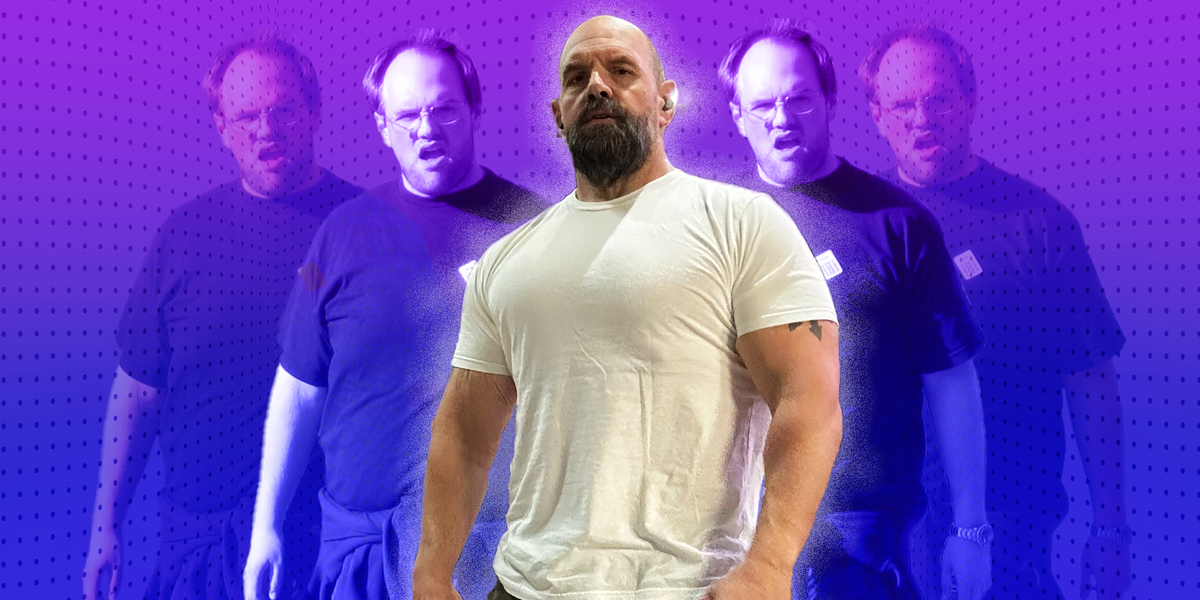WHEN ACTOR ETHAN SUPLEE WENT FROM 550 TO 300 POUNDS
On a bright, crisp afternoon, Ethan Suplee stood in front of the mirror, a mix of pride and apprehension swirling within him. He had shed more than half his body weight, yet the reflection staring back at him told a different story—loose skin, the remnants of his past, clinging to his frame like an unwanted shadow. For Suplee, this moment encapsulated a struggle not just with weight, but with self-acceptance in a world that often equates thinness with beauty.
The Weight of Expectations
Clinically obese by age ten, Suplee’s battle with weight began long before he could truly understand its impact. Fad diets and temporary struggles marked his youth, shaping a relationship with food that was fraught with insecurity. By the age of 26, the actor embarked on a courageous journey toward transformation. His first significant attempt at weight loss in 2002 involved a liquid diet, followed by various methodologies, including a blood type diet. By 2005, with the help of a keto diet and rigorous workout sessions under the guidance of a trainer, he had lost 250 pounds.
Yet, as Suplee soon discovered, weight loss is not merely about numbers on a scale; it is also about confronting the physical and emotional remnants that linger long after the pounds have disappeared. “I’m smaller, but nothing is tighter at all,” Suplee reflects. The reality of loose skin became a profound source of insecurity, one he often disguised with baggy clothing.
Confronting the Unseen Battles
The silence surrounding loose skin post-weight loss is deafening. “When people think of weight loss, they often ignore the skin’s elasticity that may not keep pace with your transformation,” says Dr. Lisa Corbin, a clinical psychologist specializing in body image issues. Her studies indicate that over 30% of individuals experiencing significant weight loss report feelings of body dysmorphia due to excess skin.
- Physical impact: Patients may experience discomfort due to skin rashes or infections, which can impair daily functioning.
- Emotional fallout: Many face anxiety, depression, and feelings of inadequacy—despite their weight loss progress.
- Health implications: Loose skin can hinder exercise and physical activities, further complicating health goals.
As Suplee shares, “There’s not something that can magically remove the skin. It’s an organ.” This sentiment resonates with many who’ve experienced substantial weight loss. Chris Campbell, a plastic surgeon and associate professor at the University of Virginia, has witnessed firsthand the psychological toll of excess skin. “You have patients who have struggled with their weight for decades, only to realize that their body doesn’t match their newfound expectations,” he explains.
The Rising Trend of Body Contouring
In the years since Suplee’s first surgery in 2008, societal understanding of loose skin and body contouring has transformed. The American Society of Plastic Surgery reported a 23% increase in procedures aimed at removing excess skin in 2022. This surge correlates closely with the rise of bariatric surgeries and the availability of weight-loss medications like Ozempic and Wegovy.
Learning to Live
Despite the setbacks and struggles, inspiration often emerges from the ashes of hardship. Following an arduous path marked by setbacks—gaining weight after each surgery—Suplee chose to redefine his relationship with his body. “In 2018, I decided to learn what truly worked for me in terms of nutrition and exercise,” he explains. “That’s when I understood how to live the rest of my life.” Today, Suplee’s regimen consists of measured meals, workout routines, and, importantly, self-acceptance.
As he maintains a healthy weight, Suplee acknowledges the persistent reality of loose skin. “I don’t love it, but I like it more than if I was to fill it out with fat,” he states, showcasing a pragmatic approach to his self-image. “This idea of having a body that looks the way I want it to look—I think it doesn’t exist.”
Campbell also emphasizes that many patients remain hopeful and positive after body contouring, recognizing their weight loss achievements. “By and large, the psychological aspect is favorable after body contouring,” he notes.
Breaking the Silence
Suplee’s candidness about his journey serves as a powerful reminder that discussions surrounding weight loss and body image must encompass the realities many face. “I talk about it every chance I get because it’s gonna happen,” he insists. His dedication to sharing his story aims to enlighten those embarking on similar journeys.
Major milestones—such as recognizing abdominal definition for the first time or completing a full marathon on a rowing machine—paint a picture of resilience. Yet, they don’t erase the complexities of body image. Suplee has learned that the scale offers limited satisfaction; instead, he focuses on contentment and health. He often stands before the mirror, refusing to walk away until he finds something he admires, even if it takes time. “If I’m in my head thinking bad thoughts about myself, I’m basically shitting on someone they care about. And that’s not the person I want to be,” he reflects.
In a world where conversations about weight loss often skirt the emotional and psychological hurdles, Ethan Suplee stands as a testament to endurance, vulnerability, and the relentless pursuit of self-acceptance. His journey not only inspires but also reshapes the narrative around weight loss, proving that true transformation extends beyond mere numbers or reflections—it resides in the heart and mind.
Source: www.menshealth.com


